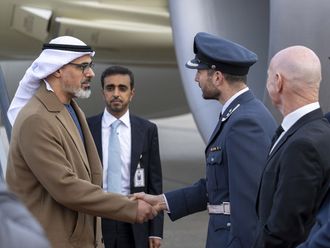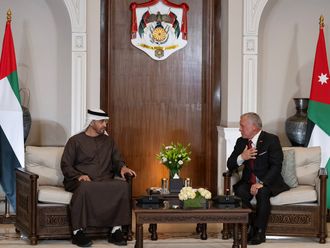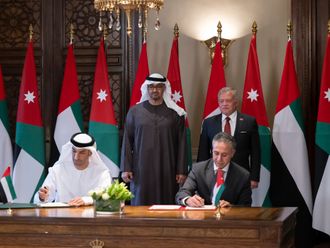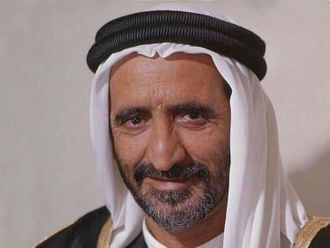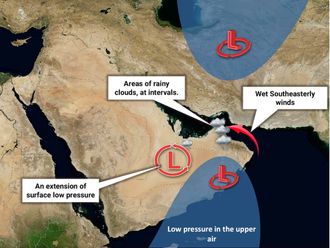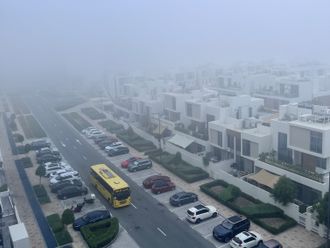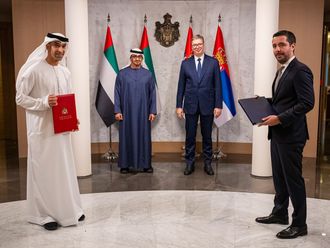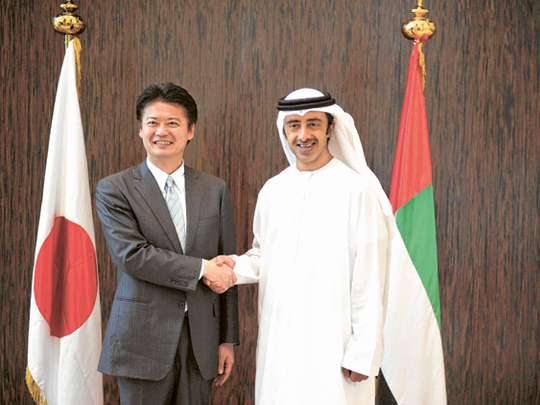
Abu Dhabi: "No party, be it the GCC countries, Iran or the international community, would benefit from blocking international waterways," said Shaikh Abdullah Bin Zayed Al Nahyan, the UAE Foreign Minister.
Speaking at a press conference in Abu Dhabi yesterday with his Japanese counterpart, Koichiro Gemba, Shaikh Abdullah stressed that blocking international waterways will also adversely affect stability of energy markets.
Japan's foreign minister met UAE officials yesterday as part of a regional tour to discuss potential sanctions on Iranian oil exports and their effects on resource-poor Japan.
The leaders also discussed the UAE embargo on Japanese foods and a visa waiver system allowing citizens of both countries to obtain visa on arrival at the airport as well as free trade agreement between the GCC countries and Japan. Responding to renewed calls from the US for the UN to impose unilateral sanctions against Iran, President Mahmoud Ahmadinejad threatened that any new sanctions will be countered by a naval blockade of the Straight of Hormuz, a major route for the transport of oil and imports for Saudi Arabia, Kuwait, Iraq, Bahrain, and the UAE.
Positive language
Shaikh Abdullah said Iranian threats have changed into a more positive language, which we hope will prevail. The Japanese foreign minister agreed and said Iran should not threaten the Strait of Hormuz.
Shaikh Abdullah assured his Japanese counterpart that priority will be given to Japan in importing more oil from the UAE.
The US and its allies in Europe have been saying Iran's nuclear programme is aimed at building nuclear weapons and have threatened to impose an embargo on Iran's oil exports.
Iran denies the charge, saying its nuclear programme is meant for peaceful purposes and if its oil exports are threatened, it will close the Strait of Hormuz.
Shaikh Abdullah said the mission of the Arab League monitors in Syria was getting tougher by the day. "Unfortunately, the monitors are attacked by elements who are not from the Syrian opposition. I do not want to accuse any party. I also wish to leave this issue to the chief of the Arab League, who should speak of attacks on the monitors."


